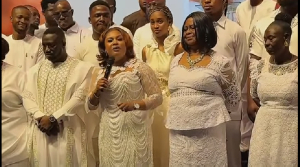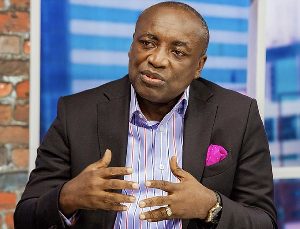The Tragedies of African Democracies: why the best doesn’t mean good
(Part V)
Ethnicity and threat of election violence
While there may be historical backdrops to the ethnic politics within Ghana’s body politics, its contemporary form is seriously worrying. It is obviously assuming dimensions that require action from the state before things go awry. A report titled “the successful Ghana election 2008 - a convenient myth? Ethnicity in Ghana’s elections revisited” is a wakeup call to Ghanaians to start working toward programs that will reduce the overbearing ethnic influence in her body polity. Indeed, the report identifies the hot spots around the country and lays the facts bare. There are no doubts that individuals and populations or electorates will definitely vote for parties and leaders they trust and believe can best protect their interest. If that is the case, then we can assume that the two regions - the Volta region and the Ashanti region - where the report categorically pointed out the simmering tensions in elections are only acting rationally. Even reports from the recent constitutional review commission in Ghana have been categorical in how ethnic issues dominate proposals for consideration from these regions.
Many have tried very hard to find meanings and explanations to this phenomenon of voting on ethnic lines. But like all political issues, that depends on which side of the political divide one is situated. I have had to deal with individuals who thought the Ewe ethnic group is so inward looking that whatever the NPP party would do to win them over, they would always vote for the NDC and so do the Ewe also feels about the Ashanti electorate.
If political parties are ideologically driven, then the situation where over 90 percent of votes from each of these regions to the two parties must be a far cry from that ideological leaning. Does it mean that over 90 percent of people from the Volta Region are social democrats and over 90 percent of individuals from the Ashanti Region liberals, as the case have been?
But these electioneering pitfalls go back to the roots of how most African societies are structured. People rely on their kinsmen in leadership positions for favors that can only come from such people. When it comes to recruitments, award of contracts and all other processes that require set standards to be met, they are sure their kinsmen can influence such processes in their favor. This is magnified at the national level with the political parties serving similar purposes for the individuals. In this case, a change in government simply implies that those opportunities would be lost.
The Armed forces scenario, captured subsequent series, is a typical example of this situation. It is for these reasons people would go to great lengths to ensure that their party remains at the helm of affairs, as their opportunity is at the other person’ expense. Not until state institutions are strengthened well enough to discharge their duties without fear or favor, we will be seeing these situations across the continent and not only in Ghana.
While at least Ghanaians are not on each other’s throat and they still can discourse on these issues, it is a positive sign of the democratic adventure that some independent institutions are coming out now to point out the dangers to us. It is up to the various political parties to do some reflection to understand the dynamics of this pattern of voting and unflinching support for a one side of the political divide by ethnic groups. We have seen its debilitating consequences in Kenya after its 2007 general elections, and examples abound on the continent.
While not an advocate of the “all-die-be-die” statement of the standard-bearer of the opposition NPP and the explosive comments by the Chairman of the NPP, I think the chickens have come home to roost at long last. When the unfortunate ethnic incident unfolded in Kenya in 2007, depending on which side of the political divide one had sympathies for, Professor John Evans Atta-Mills similar comment was either in good taste or in bad taste. The table has turned and similar sentiments are being expressed by the other side of the political divide. The question is: is there something fundamentally wrong of being in opposition and that makes our leaders spot the trouble spot-on that those in government cannot see?
A ruling caste had arisen in our country, which based its power on the sowing of hatred, on pitting brother against brother, on liquidating everyone who held a view different from theirs. But electorates tend to get the politicians they deserve. So it might be right to say that Ghanaians are getting the kind of politicians they deserve?
Keep tune in…
The above-title is serialized into 30 articles covering issues of politics, corruption, education, immigration, the economy (Ghanaian economy), unemployment, land tenure, dearth of policy innovation, and stories from the frontlines – Cote d’Ivoire, Kenya, ECOWAS and the AU. The series are syndicated and media houses/outlets interested in enriching the national debates in Ghana for the 2012 are free to publish all the series.
By: Prosper Yao Tsikata
Email: pytsikata@yahoo.com
Opinions of Friday, 21 October 2011
Columnist: Tsikata, Prosper Yao














